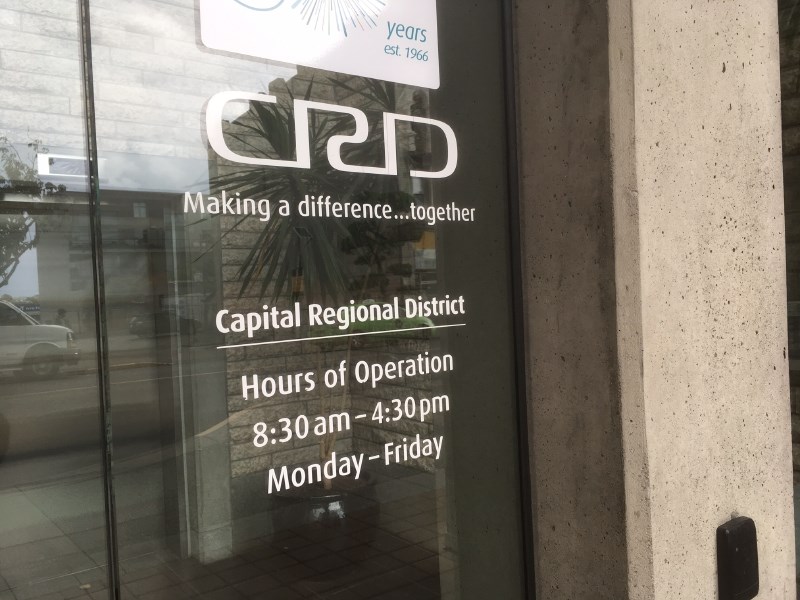Due to rising construction costs, the Capital Regional District is seeking municipal approval to borrow another $10 million in order to meet its goal of building homes for people dealing with chronic homelessness.
The district along with the federal and provincial governments have already committed $30 million each to a $90-million Regional Housing First Program with the goal of creating 2,000 units of affordable housing — including 400 that would be rented at the province’s social assistance shelter rate of $375 a month.
CRD officials say the program is expected to fall short of its original target unless all the partners each contribute another $10 million for a total of $120 million.
As of Wednesday, the district said the program was on pace to build more than 1,300 units, including 300 at the shelter rate, by Dec. 31, 2021.
“When we started to actually build, like the rest of the region, we found that housing costs have escalated,” CRD board chairman Colin Plant said Wednesday.
“So, as a board, we decided that we wanted to fulfill our commitment to 2,000 units, and by adding an additional $10 million — if the provincial and federal government were to match — we would achieve that.”
Before it can borrow the money, however, the CRD needs two-thirds of the municipalities and electoral districts to give their consent.
Municipal councils will be voting on the issue in the coming weeks, while three electoral districts will employ an alternative approval process whereby voters who object to the proposal must fill out a form and submit it to the CRD. If more than 10 per cent of eligible voters object in a particular electoral area, consent is declined. The deadline for submitting forms is Feb. 18.
The CRD says the cost of borrowing $10 million over 15 years means that the average homeowner with a property assessed at $750,000 will pay an extra $4.58 a year in taxes.
Plant said the plan received unanimous support from the CRD board, so it’s likely to receive the backing of municipal councils as well.
“I am confident this is going to pass,” he said.
“I believe the residents of this region acknowledge that housing is the No. 1 issue that affects people in their daily lives, and they will be supportive.”
Victoria Mayor Lisa Helps, who was singled out by Plant as a driving force behind the Housing First program along with Coun. Ben Isitt, said the chance to secure matching money from the federal and provincial governments should be a major selling point.
“If we agree to put forward the extra $10 million, B.C. Housing is in for another $10 million and it’s very, very likely — strong signals from Ottawa — that we’re going to get another $10 million from them,” Helps said. “So the opportunity to turn $1 into $3 doesn’t happen every day and I think this is a great opportunity for the region.
“I think it’s been a surprisingly successful program,” she added. “Most people will remember when we brought forward the idea, it was pooh-poohed quite heavily.
“Even though the idea initially came from Victoria council, the benefits are being spread throughout the region, with all of us chipping in. So I can’t see that anyone would want to not meet the original target — particularly with the shortage of affordable housing across the region.”



